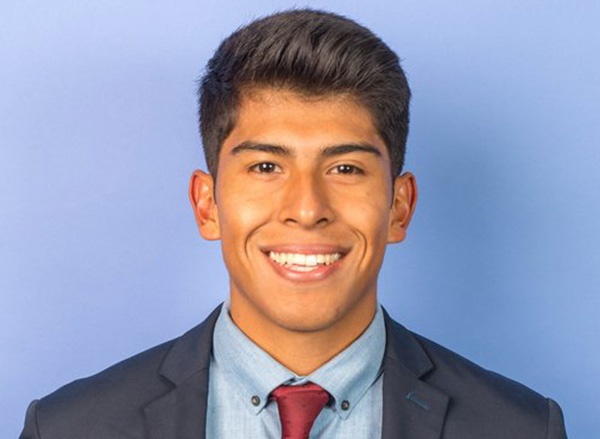BESST Graduate Prepares for Doctorate

Contreras chose to study engineering because he liked math. He also hoped to provide a better life for his mother, Rosa, who supports the family by picking strawberries. “When I got my acceptance, she was happy for me but also brokenhearted that I was moving three hours away,” he said. “We were always accustomed to looking after each other.”
Luckily for Contreras, he arrived at Long Beach State as the College of Engineering was establishing the Beach Engineering Student Success Team (BESST), a support program for incoming freshmen, particularly those from diverse backgrounds and with greatest need. Students attend a summer camp before the semester starts, go to classes and social activities as a group, and receive individual and group tutoring and mentoring.
As Contreras described it, the program gave him the solid foundation he needed to succeed in his major. And it helped him make close friends. BESST has a family feel. Students refer to Director Saba Yohannes-Reda as “Mama Saba,” and Calculus instructor Andrea Johnson is nicknamed “Ms. Dre.”
Five years later, Contreras is graduating with a Bachelor of Science in Mechanical Engineering and a string of impressive internships under his belt. His next step? Applying to PhD programs in mechanical engineering and robotics at Caltech, Massachusetts Institute of Technology, Stanford University, and University of Michigan, with the goal of working as a university professor. You can view some of his projects here.
Contreras credits a friend from BESST for introducing him to the BUILD program, which offers intensive training for undergraduates interested in health-related research. Under BUILD, he began working with Professor Panadda Marayong on rehabilitation projects for amputees.
Two summers ago, Contreras completed a summer internship at Northwestern University. Last summer, he worked on a four-limbed robot while completing an internship at MIT. He’s currently working as an intern at NASA Jet Propulsion Laboratory’s robotics lab. With a strong desire to give back, Contreras still finds time to mentor younger BESST students.
“The majority of the BESST students are the first in their families to attend college, and leaving home makes it a challenging college experience,” said Yohannes-Reda. “The BESST program provides a support network before even beginning college during the one-week summer program.”
BESST’s cohort model also supports BESST students academically. Most have maintained GPAs of at least 3.0, qualifying them to receive multiple scholarships.
Donors have been key in generously supporting BESST, which helps encourage more diversity in STEM fields. The program has attracted much-needed financial support from corporations (Southern California Edison), nonprofits (The Ralph M. Parsons Foundation), and individuals.
“We are very gratified the program is helping students from a broad variety of backgrounds advance toward their dream of becoming an engineer,” said Tracy Bradley Maples, College of Engineering Associate Dean for Academic Programs. “Producing graduates who represent our diverse society will help ensure that technology companies produce products and services more representative of society as a whole.”
Contreras credits his mother for inspiring him to work hard and hopes to use that same inspiration to complete his doctorate. “I never saw her in a weak moment because she was always focused on getting me through school. She would wake up at 4 a.m. and come home at 6 p.m. and make me dinner with a smile on her face every day.”
But he also credits BESST. “It gave me the liftoff I needed to succeed academically,” he said.





